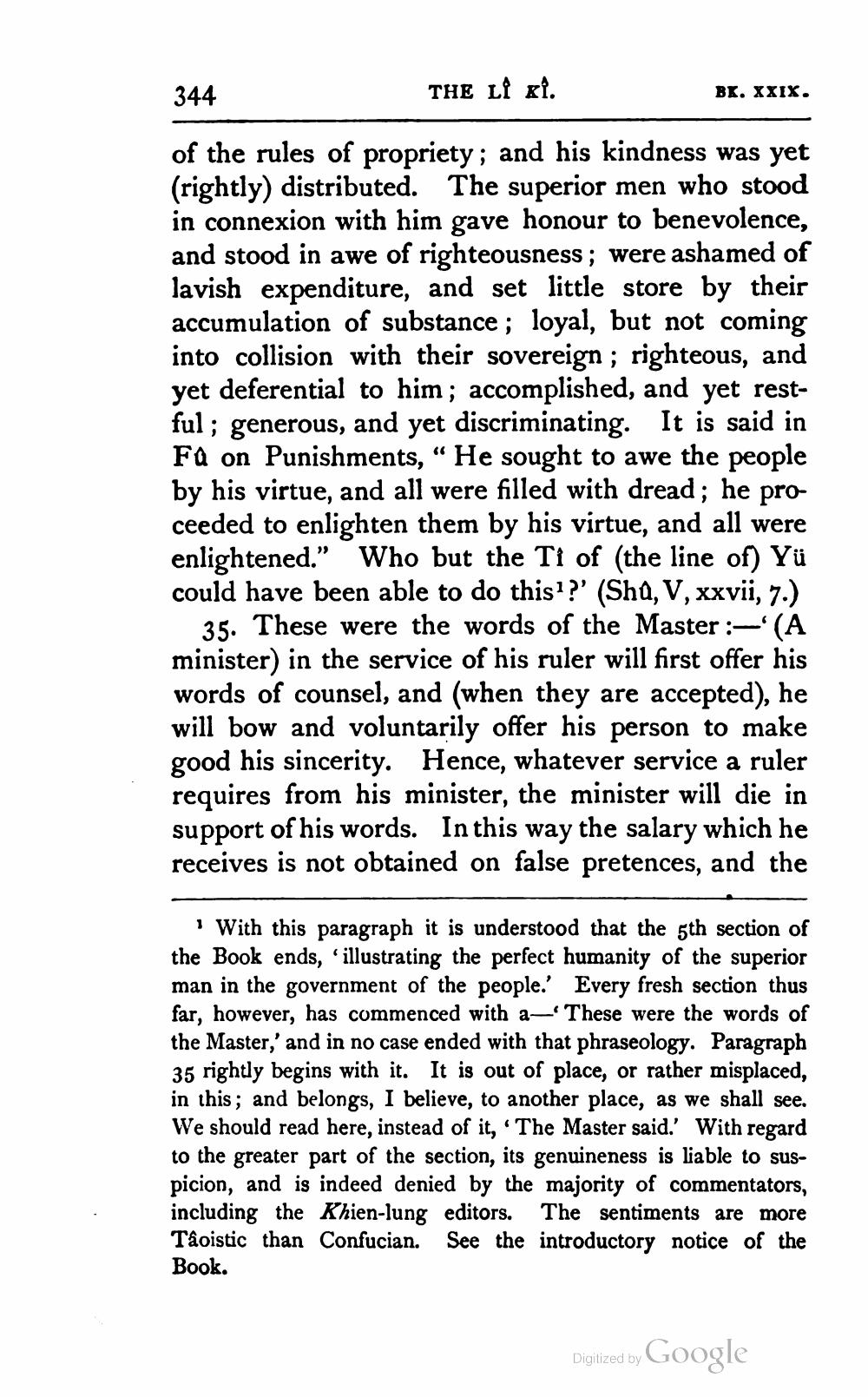________________
344 THE LÎ xt.
BK. XXIX. of the rules of propriety; and his kindness was yet (rightly) distributed. The superior men who stood in connexion with him gave honour to benevolence, and stood in awe of righteousness; were ashamed of lavish expenditure, and set little store by their accumulation of substance; loyal, but not coming into collision with their sovereign; righteous, and yet deferential to him; accomplished, and yet restful; generous, and yet discriminating. It is said in Fa on Punishments, “ He sought to awe the people by his virtue, and all were filled with dread; he pro ceeded to enlighten them by his virtue, and all were enlightened.” Who but the Ti of (the line of) Yü could have been able to do this??" (Sha, V, xxvii, 7.)
35. These were the words of the Master :-'(A minister) in the service of his ruler will first offer his words of counsel, and (when they are accepted), he will bow and voluntarily offer his person to make good his sincerity. Hence, whatever service a ruler requires from his minister, the minister will die in support of his words. In this way the salary which he receives is not obtained on false pretences, and the
1 With this paragraph it is understood that the 5th section of the Book ends, 'illustrating the perfect humanity of the superior man in the government of the people.' Every fresh section thus far, however, has commenced with a—These were the words of the Master,' and in no case ended with that phraseology. Paragraph 35 rightly begins with it. It is out of place, or rather misplaced, in this; and belongs, I believe, to another place, as we shall see. We should read here, instead of it, The Master said.' With regard to the greater part of the section, its genuineness is liable to suspicion, and is indeed denied by the majority of commentators, including the Khien-lung editors. The sentiments are more Taoistic than Confucian. See the introductory notice of the Book.
Digitized by Google




